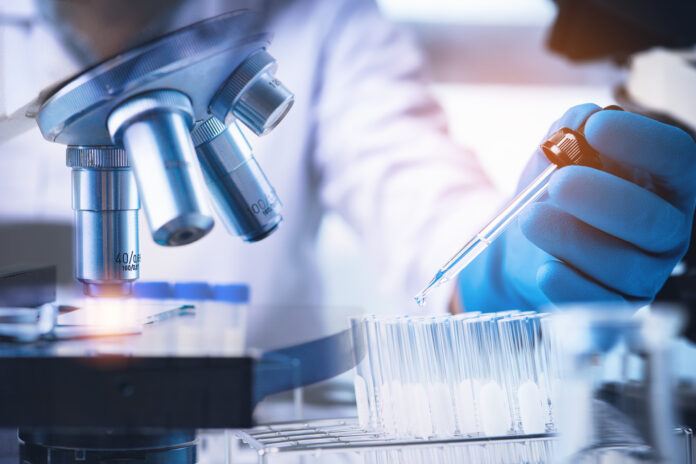Background
The purpose of patent law is to encourage innovation by granting inventors exclusive rights to their inventions for a limited period. This legal protection incentivizes the development and sharing of new technologies, ensuring that inventors can benefit commercially from their creativity. In return for this monopoly, inventors must publicly disclose their inventions, contributing to the wider knowledge pool and fostering further innovation. This balance aims to stimulate technological progress while ensuring public access to new inventions after patent rights expire.
To foster innovation and the further development of patented inventions, experimental use of a patented invention for generating knowledge about the patented invention is exempted from patent protection in many jurisdictions. Bolar-type exemptions on the other hand allow clinical studies for the purposes of market approval of a patented product, i.e., they allow experiments that serve purely commercial purposes. Other than experimental use exemptions, Bolar-type exemptions primarily serve public interests, i.e., the facilitation of early market approval for generic medicines.
AIPPI is convinced that consistent and predictable application of experimental use and Bolar-type exemptions are key factors in advancing technological progress and medical research nationally and globally. Intensified international cooperation after the outbreak of the COVID pandemic has strongly increased the need for harmonization of these exceptions to patent protection. AIPPI’s Pharma Committee, one of the 25 Standing Committees within the organization, drafted a questionnaire and received responses from 37 national groups. The group reports provide a comprehensive overview of the national laws of these groups. The reports are prepared by intellectual property law experts, attorneys, academic researchers, judges and in-house professionals. These reports and the final resolution can be accessed in AIPPI’s online library (see here).
The adopted resolution
AIPPI’s adopted resolution proposes a harmonized approach to the experimental use and Bolar-type exemptions that national courts and legislators should consider to further consistent and predictable legislation and jurisprudence.
Based on an analysis of diverging national practices reported by AIPPI’s national groups, the following suggestions for harmonization were discussed, drafted and adopted at the AIPPI World Congress in Istanbul.
Exempted acts
The experimental use exemption should cover experiments on the subject matter of the invention. In other words, the purpose of the experiment must be to generate knowledge about the invention. Conversely, if the invention is a research tool, using this tool in experiments for other purposes should not be covered by the exception. If the experiment is directed at the investigation of the patented product, the exception should apply, irrespective of whether the aim of the experiments may also have commercial value. For example, the following actions should be allowed:
- Investigating the validity of the patent and its scope of protection,
- Discovering features and properties of the patented subject matter,
- Finding alternative methods of making or using the patent subject matter,
- Improving the patented invention.
Assisting parties
A party who assists the experimenter in performing the experiments should likewise not be liable for patent infringement as long as the experiments are exempted actions. Assisting parties are for example suppliers, contract manufacturers or research service providers who help the party that conducts the experiments. These assisting parties should fall under the exemptions even if they have a purely commercial intent.
Scope of Bolar-type exemptions
The Bolar-type exemption should apply to activities necessary for developing products which require regulatory approval, regardless of whether the product is an innovative, biosimilar or generic product.
The geographical scope should extend to actions performed with the purpose of regulatory approval in a foreign country, e.g., a clinical trial performed in Germany should fall under the exemption even if the desired market authorization is applied for in the UK.
The Bolar-type exemption should apply to assisting parties as well, e.g., suppliers of patented product. However, it should be clear that stockpiling, i.e., manufacturing the patent-protected product during the term of the patent for the purpose of early market entry, is not covered by the Bolar-type exemption.
Burden of proof
The burden of proof of an exception – be it an experimental use exception or a Bolar-type exemption – should lie with the party that intends to rely on it. The same should apply for assisting parties.
Discussion
Uncertainty about the breadth and scope of an experimental use exemption can affect technological progress, particularly in industries that rely on incremental improvements of existing technologies. As of today, most countries have statutory exceptions to patent protection for experimental activities. However, the laws of the various countries are not harmonized in that the definition of what constitutes an experimental activity varies, particularly as regards commercial purposes of the experiments. Also, laws differ concerning the question of whether assisting parties may benefit from the exemption, or whether patented inventions may be used as research tools, i.e., experiments with the patented invention as opposed to experiments on the patented invention.
Having identified the many variations in the various national laws of its national groups, AIPPI adopted the resolution summarized above as a suggestion for international harmonization. The resolution is the result of many rounds of discussion among intellectual property law experts. The result is a further example of how AIPPI can help shape a more harmonized international IP landscape by providing guidance to courts and legislators around the world.
From a German perspective, the adopted resolution is not at odds with the existing laws in Germany. However, clear guidance regarding the exemption of actions performed by assisting parties is still lacking in Germany. It would be desirable to see such guidance in line with AIPPI’s resolution from the courts in due course, particularly since smaller research entities are often dependent on support by assisting parties to conduct their research. Clarity as to the extent to which the experimental use exemption covers assisting actions would improve legal certainty and thereby strengthen Germany as a country of scientific and clinical research.
Author
Markus Rieck, LL.M.
AIPPI (Association Internationale pour la Protection de la Propriété Intellectuelle)
Deutsche Landesgruppe der Internationalen Vereinigung für den Schutz des Geistigen Eigentums e.V., Frankfurt/Main
Secretary


